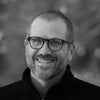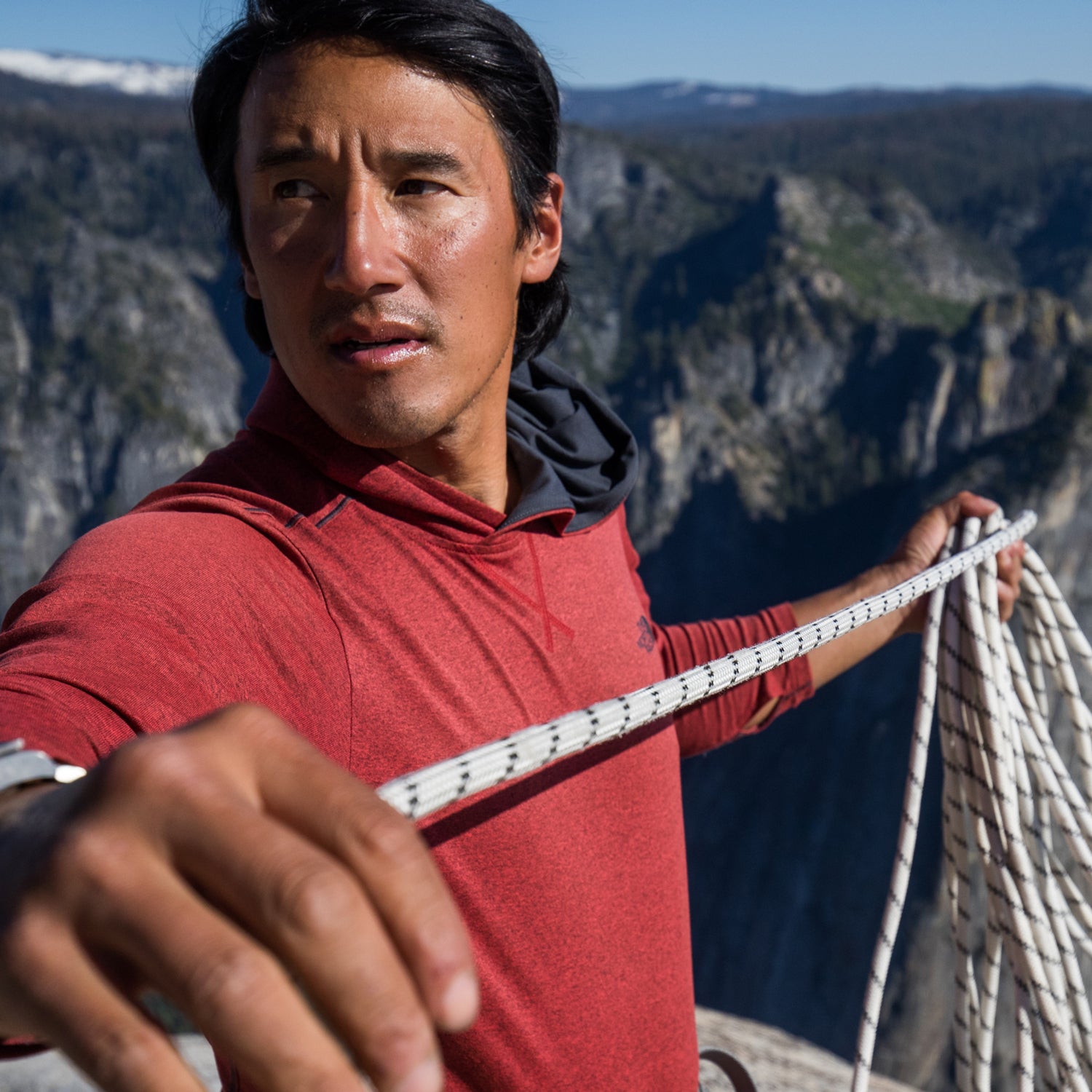When I meet in the lobby of his hotel in Vail, Colorado, he looks tired. He has every right to, and not because he’s just finished running a 5K mud run at the , which he’s attending on behalf of his latest brand partner, the Swiss watch company, . Chin stepped off a plane only the night before, directly from the Yosemite Valley, where , a physically and emotionally exhausting experience for Chin. His few hours in Vail are a whirlwind of mud run, a couple of interviews, and a screening of his acclaimed 2015 documentary film, . Then he’ll fly to New York to see his wife and kids for a day before jetting off on another assignment.
Despite his frenetic schedule, Chin is patient and thoughtful in his responses. Sipping orange juice, he alternates far-off stares with direct eye contact, taking his time to craft answers in the same way he composes his pictures. We talk about Honnold’s climb, his own changing views on risk, and balancing life being famous both behind, and in front of, a camera.
OUTSIDE: Tommy Caldwell wrote an essay last week after Alex’s climb, saying that he was terrified for Alex and was having nightmares about it. Did it affect you the same way? You were there as a friend, but also as someone who's documenting this.
JIMMY CHIN: Yeah, I've known him [Alex] and been shooting with him for almost 10 years, so I know him very, very well. I was only nervous in the sense that something could have gone wrong. But then something could go wrong if you have a family member driving. Except that he's a race car driver. I saw the process and I knew where he was at, and I know that his decision-making is solid or I never would have signed on to do the project in the first place.
I'd seen where he'd gotten over the last two years and his whole process and discipline and how much he prepared for it. He’s not the type of person that prepares to do well—he prepares for perfection. I know that about him. Obviously, I was still very nervous, but I've also seen him do all kinds of extraordinary things. I'd never seen him more prepared for anything in his life.
Do you think his climb will spawn a movement of less capable people trying free-soloing? I’m picturing a lot of 13 year-old wannabe Alex Honnolds scaling the sides of their school buildings.
Free-soloing is very self-regulating. You can aspire to be the greatest free-soloist of all time, but you can get 50 feet off the ground and be like, “I don't really like free-soloing.” You can't just fake your way up.
With Ueli Steck’s recent tragic death and last year, how does that affect you? These are people you know, people with whom you're friends. You’ve got two kids, you're married. I’m guessing it's changed things for you, in terms of how you address risk and goals.
You become more conservative just from experience because you've seen the different ways you can die, essentially. You're just much more cognizant of the risks and how there's a certain amount of accidents that happen just because of the statistics. It's not like you necessarily made mistakes. It's just about the amount of time that you've spent exposed to objective hazards that you don't have any control over.
I used to train a lot in the mountains to gain more experience, and now I train less in the mountains because I only reserve that time for when I'm really trying to do something. I know I can do a lot of the training in space that's relatively safe. I don't need to keep building that deep base of experience, but it's balance because you have to spend enough time in the mountains to keep your edge and stay on your game.
I know to a pretty high degree what I'm capable of there. I know how much I can suffer, I know how much I can push. Those experiences have taught me a lot, but I've had them, I've gone to the edge, looked over the edge. I’ve come back from the edge a few times. It's kind of like, “How many more times can you go look over that edge?”
Do you think the challenges of filmmaking can provide the same buzz?
Yes, definitely. As a director, it feeds something deep and satisfying, how you lead your team. There are a lot of parallels in terms of that sense of camaraderie and that sense of commitment and dedication. Documentaries are really, really hard. You're not constructing scenes like in a commercial. You're putting your bets down that it's going to just happen, but you can't miss opportunities either.
It's also managing your crew and how much you can push them, even just in terms of the physicality of it, like with this Alex film. Then also just managing the space and being hyper-conscious and maintaining a neutrality to what Alex is doing. You don't want to be in a headspace where you feel like you want to push him. That comes from a lot of thought, being a close friend of his, being very clear within yourself about what your intentions are and making sure they're in the right space.
You've developed some fame beyond being the guy behind the camera. Now you're also the guy in front of the camera with brand partnerships and . Do you feel any pressure?
I do sometimes. But in the last month, I've posted two photos [on Instagram]. There's too much life happening around me right now. I'm not like the guy who posts two times a day that's on it all the time. I have to be inspired. The hardest pressure for me is the pressure that I put on myself. That's plenty. I'm 43. I'm living my life. Being a celebrity to me has no real meaning behind it, so it's not like I think about it that much. In fact, I don't think about it at all. I think about doing what I do. Most of my focus is on the craft.
When you've seen people pull off extraordinary moments in the mountains and show intense integrity or extreme loyalty, all these things, you judge people by their character. I see people for who they are. That's what I expect from other people of me as well. I feel pretty comfortable being myself.


